Well, Wisconsin is proof that reintroducing elk pays off. Wisconsin will have its first managed elk hunt ever thanks to 22 years of conservation efforts of the DNR and its partners.
Below is a news release issued by the Wisconsin Department of Natural Resources.
March 12, 2018
First managed elk hunt in Wisconsin history is result of over 22 years of conservation efforts by DNR staff and partners.
MADISON – Following more than 22 years of elk management and reintroduction efforts, 2018 will mark Wisconsin’s first managed elk hunt in state history.
“This is an incredible conservation success story for Wisconsin,” said Department of Natural Resources Secretary Dan Meyer. “Thanks to the efforts of so many great organizations and individuals, the northern elk herd has continued to grow to the point where we can offer this very special and long-awaited hunting opportunity.”
The area of the planned hunt is within the Clam Lake elk range of Sawyer, Bayfield, Ashland, and Price counties in far north-central Wisconsin. Original restoration efforts occurred within this range with the release of 25 elk from Michigan in 1995. This northern herd is projected to reach a population level of over 200 animals this year, including a high proportion of bulls.
“It is important to note that the areas where Kentucky elk were released in Jackson County and the Flambeau River State Forest will not be included in this hunt,” said Kevin Wallenfang, DNR deer and elk ecologist. “This hunt concentrates on elk born here in Wisconsin over the past two decades – we do not wish to take Kentucky elk, many of which are cows and may not be harvested.”
Ten tags will be made available for a bull-only hunt in Fall 2018. Four tags will be awarded to Wisconsin residents through a random drawing. One additional tag will be awarded to a Wisconsin resident through a raffle conducted by the Rocky Mountain Elk Foundation. Consistent with federal court rulings, the elk harvest quota is being shared equitably with the six Wisconsin Chippewa tribes.
“We look forward to the opportunity for Chippewa members and state hunters to have a harvest season” stated Chris McGeshick, Chairman of the Sokaogon Chippewa Community. “We continue to support this effort and look forward to seeing the herd grow, and sustaining future harvest opportunities for our state.”
Interested hunters can apply, however, only Wisconsin residents are eligible to purchase an elk tag. The application fee is $10 and applications will be available starting May 1 through the Go WILD system at GoWild.wi.gov. Prior to receiving their carcass tag, all drawing winners will be required to complete an elk hunter education course prior to the start of the season,” Wallenfang says. “Revenue from the elk tag application process will provide important funds to support elk habitat management, research and monitoring here in Wisconsin as the herd continues to grow.”
The elk harvest quota for 2018 was determined by the department’s Elk Advisory Committee, which, in addition to DNR biologists and researchers, includes representation from the following:
- Rocky Mountain Elk Foundation;
- Wisconsin Wildlife Federation;
- Jackson County Forest and Parks;
- Wisconsin Conservation Congress;
- S. Forest Service;
- Wisconsin Bowhunters Association;
- Great Lakes Indian Fish & Wildlife Commission;
- W. Stevens Point, and
- Ho-Chunk Nation.
“Our volunteers and members have been looking forward to this moment for a long time, and a hunt will show the success of the reintroduction effort to a lot of people,” said Kurt Flack, Regional Director for the Rocky Mountain Elk Foundation, which has invested over $1.6 million dollars on elk reintroduction and other conservation efforts in Wisconsin. “We are excited to play a role in the hunt and continue to raise money for Wisconsin elk management.”
Flack said that the Rocky Mountain Elk Foundation elk tag raffle tickets are expected to be available for purchase by May. Those interested in purchasing raffle tickets may do so by going to RMEF.org/Wisconsin.
Wisconsin’s inaugural elk hunting season will adhere to the following guidelines:
- season will be open from October 13 to November 15, 2018 and December 13-21, 2018;
- only bull elk may be harvested;
- Areas where Kentucky elk were released between 2015-2017 will be off limits to hunting until the population increases to levels identified in the elk management plan;
- only Wisconsin residents are eligible to receive a harvest tag; and
- harvest tags may be transferred to a Wisconsin resident youth hunter 17 years or younger.
Translocation efforts will continue in 2019 through partnership with Kentucky Department of Fish and Wildlife Resources
Wisconsin DNR has one year remaining in an agreement with Kentucky Department of Fish and Wildlife Resources to bring additional elk to Wisconsin – July 2017 marked the third year of the partnership and additional elk are planned to be released in the Flambeau River State Forest in 2019.
For more information regarding elk in Wisconsin, go to dnr.wi.gov and search keyword “elk.” To receive email updates regarding current translocation efforts, visit dnr.wi.gov and click on the email icon near the bottom of the page titled “subscribe for updates for DNR topics,” then follow the prompts and select the “elk in Wisconsin” and “wildlife projects” distribution lists.

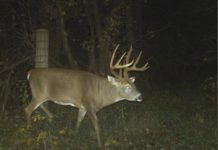
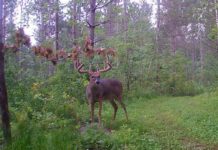
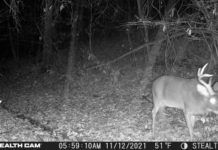





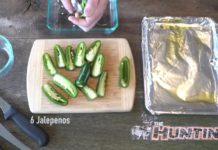
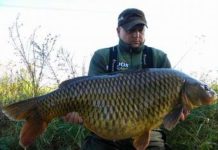
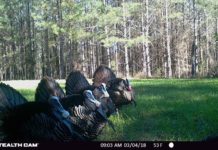

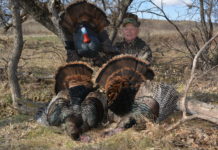

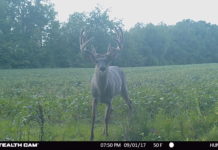
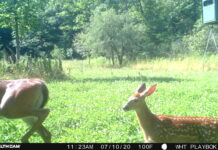
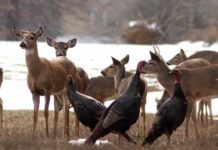
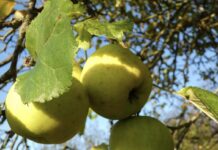
![The Best Deer Camp Chili [VIDEO] Deer Chili Ingredients, Tomatoes, Chili Spices](/wp-content/uploads/2015/10/Deer-Chili-Deer-Camp-Recipe-218x150.jpg)
![How to Call Elk Early in the Season [VIDEO]](/wp-content/uploads/2016/08/byers003-218x150.jpg)




![Idiots Disturb Hunter: How Would You Have Handled It? [VIDEO]](/wp-content/uploads/2015/10/DSC00110-e1474487693878-100x70.jpg)
![Albino Buck Shocked to Shed His Antlers [VIDEO]](/wp-content/uploads/2015/10/AlbinoDeer-100x70.jpg)